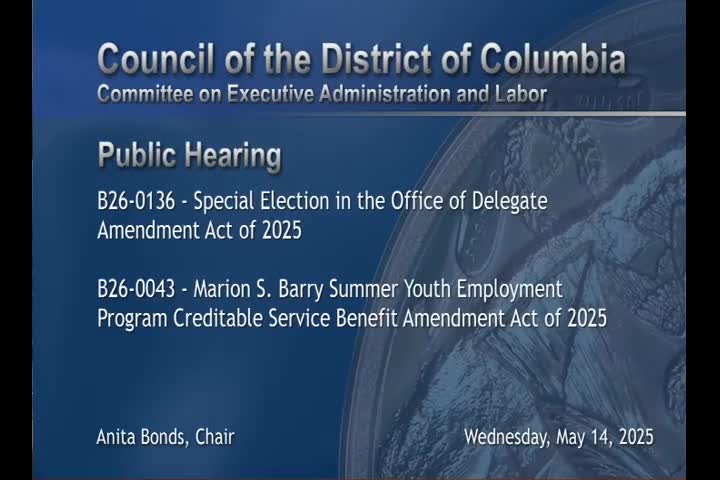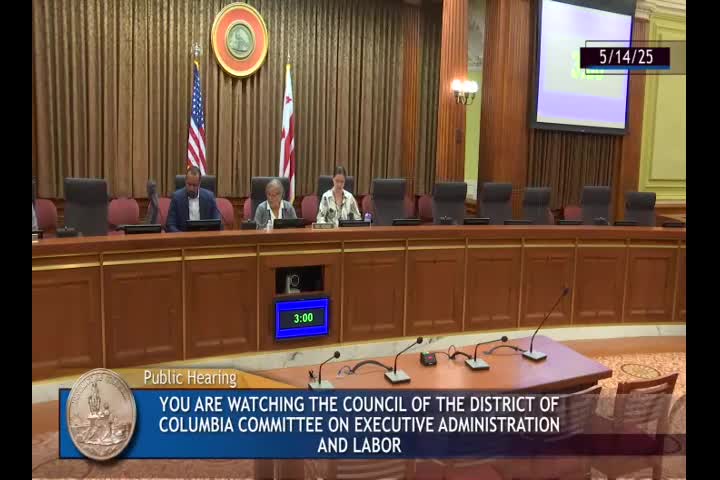Article not found
This article is no longer available. But don't worry—we've gathered other articles that discuss the same topic.

Council hearing weighs HOPE bill to expand hiring pathways for returning citizens; city HR warns of heavy administrative burdens

Hearing exposes split over portable paid leave: advocates press portability for people laid off or fired; DOES opposes as outside law's intent

Committee hears proposal to credit Marion S. Barry SYEP time toward D.C. retirement; agency flags data, administrative hurdles

